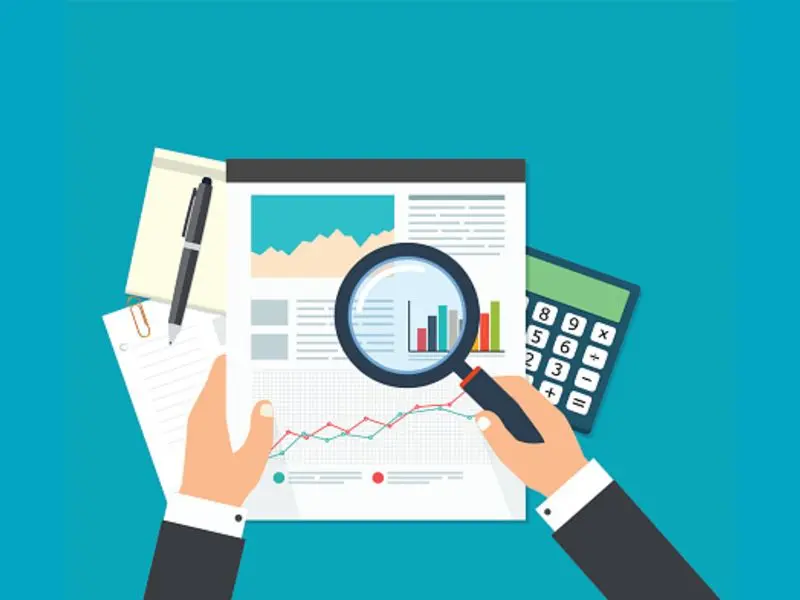Avoiding Vietnam Online Scams : Tips for Staying Safe
 huyhai
huyhai Vietnam is quickly becoming one of the most popular travel destinations in Southeast Asia, offering a rich blend of natural beauty, historic sites, and vibrant culture. From the bustling streets of Hanoi and Ho Chi Minh City to the tranquil landscapes of Halong Bay and the Mekong Delta, Vietnam attracts millions of visitors each year. However, as the internet continues to connect people globally, the risk of falling victim to online fraud is growing. To ensure a safe and enjoyable experience, understanding online security tips Vietnam is crucial. Whether you’re a local or an expatriate, staying informed about various online scams and implementing proactive measures can help protect your personal information and finances. This guide provides essential tips for staying safe and avoiding common scams while navigating the digital landscape.
1. Understanding the Types of Online Scams in Vietnam
To effectively protect yourself from online scams, it is important to understand the different types of scams that are common in Vietnam. These scams often target unsuspecting internet users, taking advantage of their trust and ignorance to steal money, personal information or sensitive data. Some of the most common scams in Vietnam include:
1.1. Online scams

Phishing is one of the most common forms of online fraud. Cybercriminals send fraudulent emails, text messages, or pop-up ads that appear to come from legitimate sources, such as banks, e-commerce sites, or government agencies. These messages often contain links that take you to a fake website that looks almost identical to the real one. After you enter personal information, such as usernames, passwords, or credit card information, the scammer uses that information for malicious purposes.
💻 You can read more: Everything You Need to Know About Vietnam WiFi and Internet
1.2. Online Shopping Scams


Online shopping scams have surged as e-commerce platforms grow in popularity. Fraudsters create fake online stores or listings on social media platforms, luring consumers with unrealistically low prices on products. Once you make a purchase, the scammer either never delivers the product or sends a subpar, counterfeit, or damaged item. In some cases, they may steal your payment details or charge you additional fees without your knowledge.
💻 You can read more : Paying with QR Codes in Vietnam: A Quick & Easy Guide
1.3. Investment Scams


With the rise of digital currencies and online investment platforms, investment scams have become a serious concern. Scammers often promise high returns on investments in fake stocks, real estate, or digital assets like Bitcoin. They may pressure you to invest quickly, offering deals that seem too good to be true. Once they have your money, they disappear, and you may never recover your investment.
💻 You can read more : Finding Reliable WiFi Hotspots
1.4. Job Offer Scams


Job offer scams have gained traction in Vietnam as more people seek employment opportunities online. These scams typically involve fake job listings that promise high salaries and attractive benefits. Scammers may ask for personal details or payment for background checks, training, or other services. Once they receive the payment or personal information, they vanish, leaving the victim with nothing but a sense of betrayal.
💻 You can read more : Digital Payments in Vietnam: A Guide for Tourists
1.5. Lottery and Prize Scams


Lottery and prize scams often target unsuspecting individuals who receive messages claiming they’ve won a large sum of money or valuable prizes. The scammer will ask for payment to cover taxes or fees before they release the “prize.” However, no prize exists, and the scammer pockets the payment.
💻 You can read more : ATMs in Vietnam: Finding Cash & Avoiding Fees
2. Common Red Flags to Spot Online Scams


Recognizing the signs of a scam is the first step toward protecting yourself online. Below are some red flags that should raise suspicion:
👉Too Good to Be True Offers
If a deal sounds too good to be true, it probably is. Scammers often attract victims with offers of huge discounts, amazing deals, or promises of high returns. Whether it’s an unrealistically low-priced product or an investment opportunity with high returns, be wary of anything that sounds like a “get rich quick” scheme.
👉Urgency and Pressure Tactics
Scammers often try to create a sense of urgency to pressure you into making quick decisions. You may be told to act immediately, or you’ll lose out on an exclusive deal. This tactic is designed to cloud your judgment and make you overlook potential warning signs.
👉Suspicious Links and Email Addresses
Be cautious when clicking on links in unsolicited emails or messages. Often, these links lead to fake websites designed to steal your personal data. Check the email address carefully for any misspellings or unusual characters. Authentic companies typically use their official domains, while scammers often disguise themselves with similar-looking addresses.
Want to avoid hidden fees? Read more about payments in Vietnam before your trip.
👉Unprofessional Websites
Before making any online purchase or investment, check the website’s professionalism. Poor grammar, low-quality images, and unprofessional design are common signs of fraudulent websites. Legitimate companies take great care in maintaining a polished and professional online presence.
👉Request for Unusual Payment Methods
If a website or individual requests payment through unconventional means, such as gift cards, wire transfers, or cryptocurrencies, be cautious. Scammers prefer payment methods that are difficult to trace, and once you’ve made the payment, it’s usually impossible to get your money back.
🌟 If you need or want to explore some tours to Vietnam, you can explore some Vietnam tours below or contact us via WhatsApp or visit the Sun Getaways Travel Fanpage.
3. Online security tips Vietnam
Now that you know the common types of scams and red flags to look out for, here are some Online security tips Vietnam for tourist:
In today’s digital age, online scams have become a significant concern, especially in countries like Vietnam. With the rapid growth of e-commerce and digital services, fraudsters have found new ways to target unsuspecting victims. Whether you’re shopping online, using banking services, or communicating on social media, it’s essential to stay vigilant and know how to protect yourself from common online scams in Vietnam.
3.1. Be Cautious with Unknown Links and Emails


One of the most common tactics used by scammers is phishing. Phishing is when scammers trick you into providing sensitive information, such as passwords or credit card details, by sending fraudulent emails or messages. These emails may look like they’re from trusted sources such as banks or popular online retailers.
Tip: Always double-check the sender’s email address or website URL to ensure they are legitimate. Avoid clicking on suspicious links or downloading attachments from unknown senders.
💻 You can read more: Stay Protected in Vietnam with a VPN: Essential Cybersecurity Tips
3.2. Avoid Sharing Personal Information


Many scams operate by asking for personal information, such as your full name, address, or financial details. While it may seem harmless, sharing this information can lead to identity theft or unauthorized transactions.
Tip: Never share your personal details over email, social media, or unsolicited phone calls. Trustworthy businesses will never ask for sensitive information through unsecured channels.
3.3. Be Careful When Shopping Online


In Vietnam, online shopping scams are becoming increasingly common, particularly on social media platforms and obscure e-commerce websites. Scammers often attract buyers with incredibly low prices, only to disappear after receiving payments.
Tip: Use trusted and reputable platforms such as Tiki, Shopee, Lazada for your online purchases. Always review product ratings an
3.4. Beware of Fake Job Offers


Job scams have also become prevalent, with scammers posting fake job listings on popular platforms or job boards. These scams often ask for payment for training or processing fees before offering employment.
Tip: Legitimate employers will never ask for payment to apply for a job. Be wary of job offers that require upfront fees or sound too good to be true.
💻 You can read more : Using Mobile Wallets in Vietnam: Momo, ZaloPay & VNPay
3.6. Monitor Your Bank Statements Regularly


Many online scams aim to steal money directly from your bank account. Scammers may use stolen card information or unauthorized withdrawals to access your funds.
Tip: Regularly check your bank statements and report any suspicious transactions to your bank immediately. Set up two-factor authentication on your bank accounts for added security.
3.7. Use Strong Passwords and Two-Factor Authentication


A simple but effective way to prevent online scams is by securing your online accounts with strong passwords. Avoid using the same password for multiple sites, and ensure your password is a mix of uppercase, lowercase, numbers, and symbols.
Tip: Enable two-factor authentication (2FA) for added protection, especially for accounts linked to financial transactions.
💻 You can read more: Vietnam Online Safety
4. Conclusion
Online scams in Vietnam are a real threat, but by staying vigilant, following best practices, and implementing online security tips Vietnam, you can significantly reduce your risk of falling victim. Always verify the legitimacy of websites and offers, be cautious about sharing personal information, and report suspicious activities. With these tips in mind, you can navigate the digital world safely and enjoy the many benefits the internet has to offer without falling prey to scammers.
Remember, staying informed and exercising caution are your best defenses against online fraud. Protect yourself by using trusted platforms, enabling two-factor authentication, and staying updated on scam trends. Encourage others to follow these tips, and you’ll be much better equipped to avoid scams in Vietnam.
Ask a question
Leave a Comment (0)
No questions yet. Be the first to ask a question!




















